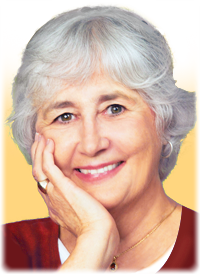Interview in England with Imagine magazine. July 2010
38 www.imagineanimation.net www.imagineanimation.net 39
Interview_The_Writer
‘The Way of Story’, the workshop and the online course is for
all forms of narrative writing. Anything with story, it helps, and
animated films have story.
So what happens on your workshops and courses?
It’s a little different in that it’s not like a lecture or something
like that, it’s experiential. I do teach craft, craft is very
important, but I also teach what I call ‘the invisibles’. That
means intuitive writing and getting your stories from dreams
or channelling from the deeper part of yourself. I sometimes
use conversation to teach people because dramatic writing,
which animated films would also be, is not just writing that
should stay on the page, it has to walk. So sometimes in the
workshops I get participants on their feet to spontaneously
act out a premise or theme and then they learn what the
dialogue should sound like.
You’ve written for television, stage and film. Do you
have a favourite and why?
I’ve been asked that before. If I had three children, would you
ask me which of the three children is my favourite child? I like
them all, they are all different forms. Of course screenwriting
is more visual, it’s a more visual place, and you focus more
on the dialogue. But I like them all. I don’t think I will agree
to choose.
When you think of an idea, what makes you decide
to put it on the stage, big screen or television?
Well ideas for stories come in different ways. I wrote a
movie for Dolly Parton called ‘Unlikely Angel’ and it’s
interesting how that came to me because it came to me
in a dream and it was a fully-fledged story, even the title.
So, sometimes ideas come to me when I’m asleep. I
always tell my clients and students that even when you’re
sleeping to keep a notebook next to your bed. Some of
the best ideas come from dreams. Sometimes a story will
come from a theme; you want to write about something
you feel strongly about. Sometimes it may come from
a character that comes to mind or it may be based on
something that happened to you in your own life. So it
can come in different ways. In Hollywood sometimes I’ve
been asked to adapt a true story or a novel so a lot of
movies are made from books, just like a lot of animated
films are made from children’s books and comic strips.
How can animators who aren’t used to writing
unlock their writing potential?
Well ‘The Way of Story’ the book has a series of short
exercises that can help jump-start the writing process. It can
even help people find their story or, as I like to say, help their
story find them. I often say to my classes that the hardest
part of writing is sitting down. It’s really about getting yourself
in the chair. The process will happen if you commit to it.
What do you think is the secret to your success
and longevity?
One reason I wanted to write my book is to say loudly and
clearly that there is no one way to write anything or to launch
your career in Hollywood or in film. There’s no one way to
do it any more than there is one way to live your life. The
best way is just to follow your own vision. In other words,
I write the stories I want to see up there on the screen.
Everyone’s success story will be a totally different story. Also,
a lot of people will write what they think the market wants. I
discourage that because the films that become successful
are usually the ones that come out of unique individual vision.
A lot of people will say write what you know about and I don’t
agree with that axiom either because, for instance, George
Lucas never travelled into space as far as I know.
What do you think makes a great writer?
Well of course there’s no one thing that makes a piece of
writing great. But I can’t think of any piece of writing that
has become great that isn’t an individual vision of a creative
mind.
For further information visit: www.wayofstory.com
01 Catherine Anne Jones
01
Words by: Michelle Grady
➔Where did you get the idea for the
concept of your book ‘The Way of Story’?
I was in Mexico lying on a hammock and
watching the clouds, and I was in a kind of
dream-like state. Very clearly I heard ‘The Way of Story’
which became the title and I knew that I was being asked to
write this book. At the time I had never written a book, I had
been writing plays and movie scripts and screenplays. I didn’t
start it until another year or year and a half later and I know it
sounds kind of strange but it was like it was in the ether and
I was just being asked to bring it down to earth. Of course
I had had a career teaching at the University of California
film school, the number one film school in America, so I had
taught screen writing and writing but I just hadn’t written a
book on writing before.
How might the book help people who are writing
scripts for animation?
“the hardest
part of writing
is sitting
down. the
process will
happen if you
commit to it.”
Award-winning New
York playwright and
Hollywood screenwriter,
Catherine Ann Jones,
has over twenty
years experience as
a professor at major
American universities. www.wayofstory.com
 The Way of Story
The Way of Story